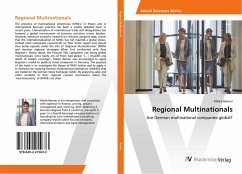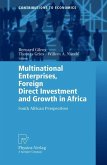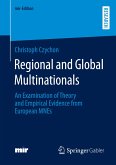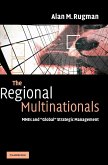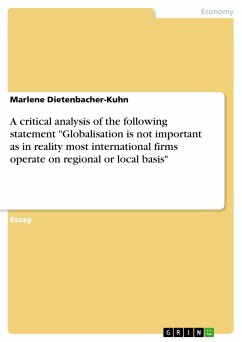The presence of multinational enterprises (MNEs) in theory and in international business practice has been a widely debated topic in recent years. Liberalization of international trade and deregulation has fostered a global environment of business activities across borders. However, extensive scientific research on relevant company data, claims that the internationalization of MNEs has not reached a global status. Instead most companies concentrate on their home region and should thus better operate under the title of 'Regional Multinationals' (RMN) and develop regional strategies. When first confronted with Alan Rugman's theory about the Fortune 500 companies not being global multinationals since hardy any of them had global "[...] breadth and depth of market coverage", Maike Benner was encouraged to apply Rugman's model to publicly listed companies in Germany. The purpose of this book is to investigate the theory of RMN further and to apply it to Germany by studying German multinational enterprises (GMNEs) that are traded on the German Stock Exchange (DAX). By analysing sales and other variables in their regional context conclusions about the 'internationality' of GMNEs are draw
Bitte wählen Sie Ihr Anliegen aus.
Rechnungen
Retourenschein anfordern
Bestellstatus
Storno

